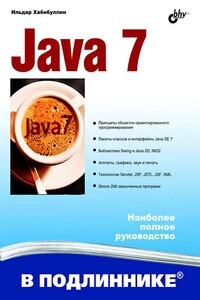Энциклопедия разработчика модулей ядра Linux | страница 20
>/* chardev.c
>*
>* Create an input/output character device
>*/
>/* Copyright (C) 1998-99 by Ori Pomerantz */
>/* The necessary header files */
>/* Standard in kernel modules */
>#include
>#include
>/* Deal with CONFIG_MODVERSIONS */
>#if CONFIG_MODVERSIONS==1
>#define MODVERSIONS
>#include
>#endif
>/* For character devices */
>/* The character device definitions are here */
>#include
>/* A wrapper which does next to nothing at
>* at present, but may help for compatibility
>* with future versions of Linux */
>#include
>/* Our own ioctl numbers */
>#include "chardev.h"
>/* In 2.2.3 /usr/include/linux/version.h includes a
>* macro for this, but 2.0.35 doesn't - so I add it
>* here if necessary. */
>#ifndef KERNEL_VERSION
>#define KERNEL_VERSION(a,b,c) ((a)*65536+(b)*256+(c))
>#endif
>#if LINUX_VERSION_CODE >= KERNEL_VERSION(2,2,0)
>#include
>#endif
>#define SUCCESS 0
>/* Device Declarations ******************************** */
>/* The name for our device, as it will appear in /proc/devices */
>#define DEVICE_NAME "char_dev"
>/* The maximum length of the message for the device */
>#define BUF_LEN 80
>/* Is the device open right now? Used to prevent concurent access into the same device */
>static int Device_Open = 0;
>/* The message the device will give when asked */
>static char Message[BUF_LEN];
>/* How far did the process reading the message get?
>* Useful if the message is larger than the size of the
>* buffer we get to fill in device_read. */
>static char *Message_Ptr;
>/* This function is called whenever a process attempts to open the device file */
>static int device_open(struct inode *inode, struct file *file) {
>#ifdef DEBUG
> printk("device_open(%p)\n", file);
>#endif
> /* We don't want to talk to two processes at the same time */
> if (Device_Open) return -EBUSY;
> /* If this was a process, we would have had to be
> * more careful here, because one process might have
> * checked Device_Open right before the other one
> * tried to increment it. However, we're in the
> * kernel, so we're protected against context switches.
> *
> * This is NOT the right attitude to take, because we
> * might be running on an SMP box, but we'll deal with
> * SMP in a later chapter. */
> Device_Open++;
> /* Initialize the message */
> Message_Ptr = Message;


